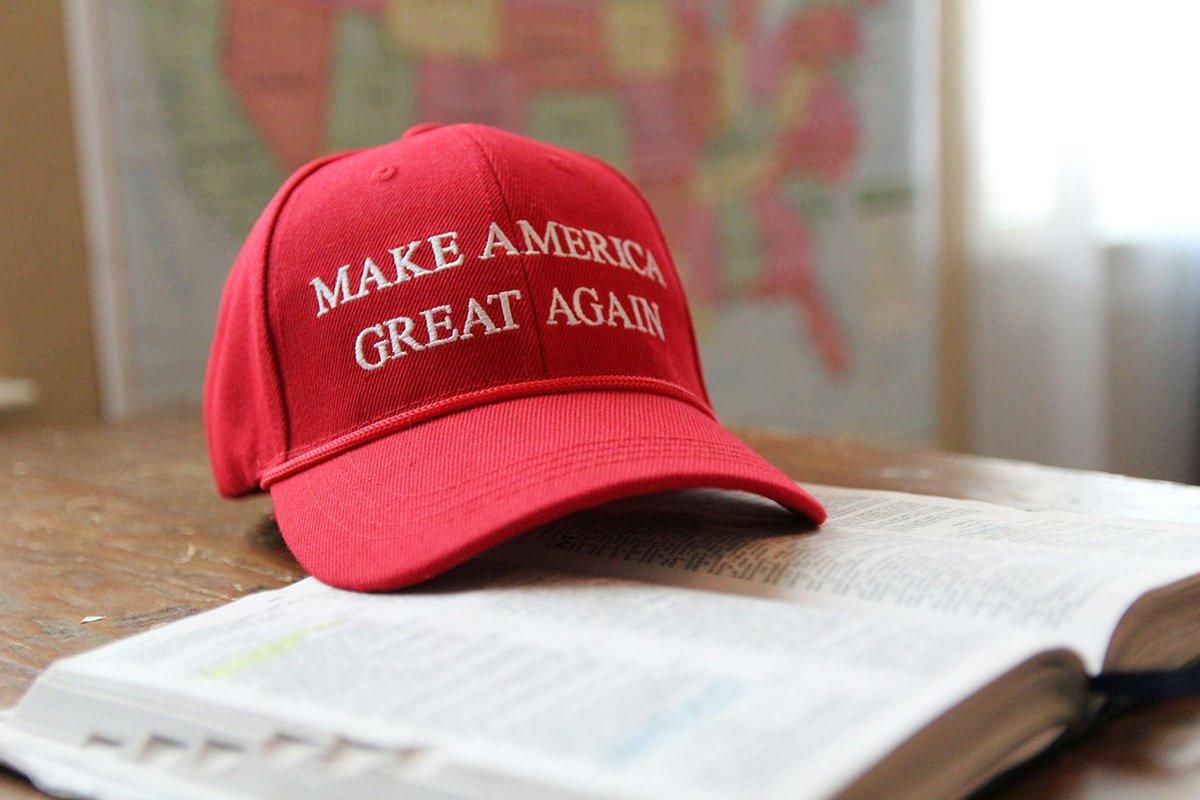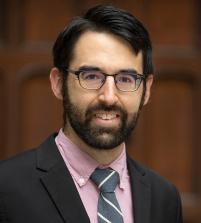
The Long Road to Iowa
Neatly dividing "political evangelicals" from "religious evangelicals" is an impossible task.
On Monday, Donald Trump won an overwhelming victory in the Iowa caucuses. Trump won Iowa, and is almost certainly going to win the Republican nomination, because he commands the unquestioning loyalty of most Republicans and the grudging respect of the rest.
Trump’s most loyal followers within the GOP are white evangelical Christians—that much, everyone acknowledges. But what does “evangelical” mean in this case? Many people have credited Trump’s success to his popularity with a new breed of evangelicals, distinct from (indeed, sometimes in outright rebellion against) the movement’s traditional leaders. Under the headline “Trump Is Connecting With a Different Type of Evangelical Voter,” one New York Times article suggested that the word “evangelical” has become “a cultural and political identity” rather than a religious one. High-profile evangelical writers are among the loudest making this claim. David French, a conservative, anti-Trump evangelical, lamented of the pro-Trump movement: “The Christianity it embodies isn’t so much Christianity at all, but rather a religiously flavored authoritarianism.”
The journalist Tim Alberta gave voice to this notion—that pro-Trump evangelicals are “political” evangelicals rather than religious ones—in his recent book The Kingdom, The Power, and the Glory: American Evangelicals in an Age of Extremism. A self-professed “follower of Jesus,” Alberta writes as someone who grew up within the evangelical movement and still deeply loves it. This intermingled sense of love and shame is evident in a recent article Alberta wrote for The Atlantic. In it, Alberta tells of attending the funeral of his father, the longtime pastor of a megachurch in suburban Detroit. This was shortly after Alberta published his first book, American Carnage, which recounted Donald Trump’s takeover of the GOP and which included some unflattering anecdotes about Trump. Many of his father’s congregants used the funeral as an opportunity to berate Alberta, accusing him of trying to undermine Trump, a man ordained by God. “All [this],” Alberta writes, “while Dad was in a box a hundred feet away.”
Alberta laments that so many people in his father’s congregation were swallowed up by hardcore Trumpism and right-wing conspiracies like QAnon. He hesitantly lays some responsibility with his father, saying that his father should have seen the rot growing in his congregation: “Did he have any idea just how lost some of his sheep really were?” But the remainder of the article makes clear that, if these sheep were “lost,” it is because they were led astray by their shepherd. Rev. Alberta used his pulpit to preach right-wing politics long before Trump came on the scene: he accused opponents of the Iraq War of encouraging terrorism, shared conspiratorial videos about the menace of Obamacare, and attacked reproductive rights and same-sex marriage as “capital sins.” Alberta tries to depict a good faith corrupted by the temptations of power, but he reveals something very different. People like his father spent decades conflating right-wing politics with true Christianity. Is it any wonder their congregants listened?
And is it any wonder that they responded warmly when they heard the same things from Trump? He may have put things more crudely than Rev. Alberta ever did, but the message was the same: the United States, indeed Christianity itself, is under assault from the forces of liberalism, secularism, and socialism. Republican candidates have been running this playbook for decades now and Trump did nothing to deviate from it.
If you want to understand the Iowa caucuses, then, put aside the podcasts and explainers and open a history book. Read Joel Carpenter’s Revive Us Again, which explains how fundamentalists successfully rebranded as “evangelicals” in the 1930s and ‘40s and sought to expand their influence in American culture and politics. Read Daniel Williams God’s Own Party, which provides a thorough accounting of the romance between white evangelicals and the Republican Party. Most of all, read Kristin Kobes Du Mez’s Jesus and John Wayne, which remains the best examination of how Trump tapped into an authoritarian current which runs deep in American evangelicalism.
These books make clear that neatly dividing “political evangelicals” from “religious evangelicals” is an impossible task. As the case of Rev. Alberta shows, neither evangelical pastors nor the people in their pews drew any such neat distinction between their political and religious views. And as the case of Iowa shows, many white evangelical Christians are once again eager to turn those views into policy.
Featured image by Natilyn Photography via Unsplash


